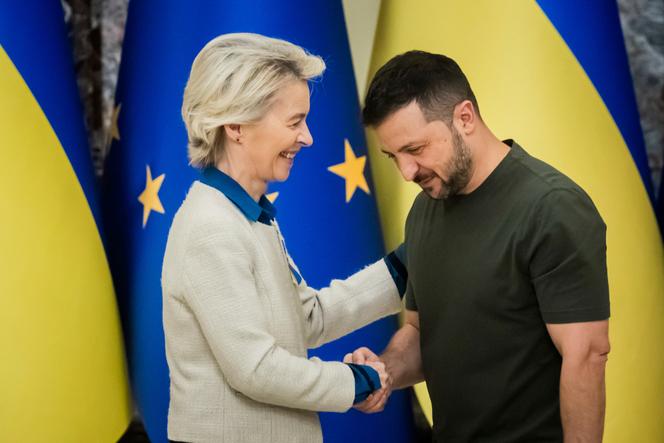


As the war in Ukraine continues, Ukrainian President Volodymyr Zelensky is set to embark on a quick tour of the United Kingdom, France and Italy on Thursday, October 10 in search of support. In light of this, on Wednesday, the 27 member states' ambassadors to the European Union (EU) agreed to increase their financial aid to Kyiv. They have decided to lend Ukraine up to €35 billion by 2025.
This was not exactly the original plan. In June, at the urging of Washington, the G7 nations – the United States, the UK, Germany, France, Italy, Canada and Japan – promised to grant Kyiv a $50 billion (€45.7 billion) loan. The goal was to establish a secure aid package for Kyiv that could not be jeopardized by the potential return of Donald Trump to the White House or the rise of the far-right in Europe.
The plan was for the Europeans to contribute $20 billion to the effort, the US as much, while London, Ottawa and Tokyo would contribute the other $10 billion. Since there was no expectation of Kyiv repaying this loan, it was envisioned that the interest on the Russian Central Bank's assets, which had been invested outside Russia and frozen following Western sanctions against Moscow, would be used for this purpose.
Before making a decision on a divisive issue during his election campaign, US President Joe Biden wanted to minimize the cost to American taxpayers. He asked European leaders to ensure that the frozen Russian assets on their territory, which make up more than two-thirds of the total Russian assets frozen worldwide, would remain frozen until Moscow paid war reparations to Kyiv.
The US wants the sanctions against Moscow, which are currently renewed every six months, to have a lifespan of 36 months. This, like all sanctions, would require a unanimous decision by the 27 member states. In Budapest, Viktor Orban was eagerly waiting for this opportunity to derail the EU's plans. The Hungarian prime minister, who is openly close to Vladimir Putin and often seeks to capitalize on his relationship with European partners, is a regular opponent in this regard.
He blocked negotiations for weeks before the 27 member states reached an agreement on February 1 to provide €50 billion in financial aid to Ukraine until 2027. For over a year, Budapest has prevented the Europeans from delivering the promised €6.6 billion in military aid to Kyiv.
Hungary is opposing the extension of sanctions and suggesting that it is more appropriate to wait for the outcome of the US elections before making any decisions. "We'll have to see which way the future US administration goes on this issue. The election campaign will show that. There are two ways of solving this problem: one for peace, the other for war," reiterated Hungarian Finance Minister Mihaly Varga on Tuesday at a meeting with his European counterparts in Luxembourg. In other words, the opposite of the G7's objective.
You have 49.02% of this article left to read. The rest is for subscribers only.
